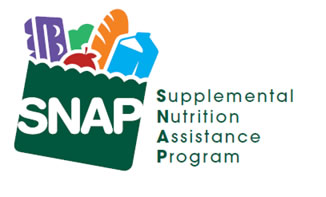
Politico reports that the Trump administration wants to partially replace “food stamps” with “a box of government-picked, nonperishable foods every month.” Under the plan, recipients of Supplemental Nutrition Assistance Program (SNAP) benefits, which these days are delivered as debit card balances rather than as physical coupons — “stamps” — would receive about half as much money to buy food with. The other half would be replaced by the “America’s Harvest Box,” stuffed with “100 percent U.S. grown and produced food” such as shelf-stable milk and canned goods.
From the initial response, one might expect this plan to go nowhere. Its cost-cutting benefits are debatable (the US Department of Agriculture says it would save $129 billion over ten years, but they’re not including the cost of actually delivering the food). Grocers oppose it for the obvious reason that it would reduce the amount of money flowing through their cash registers. Smaller-government types point out that it would entail a bigger USDA and that families are better judges of their own food needs than some box-packing bureaucrats.
But it still might pass. Why? Because the purpose of “food stamps” is not what most people think it is.
What is that purpose?
No, it’s not to feed the poor. That’s a happy side effect and a convenient excuse.
The real purpose of the program is to justify welfare checks to Big Agriculture.
That’s where the program came from, starting during the New Deal, when US Secretary of Agriculture Henry Wallace proposed it as a bridge across “a gorge, with farm surpluses on one cliff and under-nourished city folks with outstretched hands on the other.”
That’s why low-income households received “government cheese” in the 1980s when the federal government got caught warehousing enormous quantities of dairy products it bought for the purpose of propping up milk prices.
And that’s why SNAP remains the largest appropriation line in the “Farm Bill” that Congress passes every five years (the 2014 Farm Bill dedicated $756 billion to “food stamps and nutrition”).
Good arguments against Trump’s proposal notwithstanding, the “America’s Harvest Box” would serve the program’s true purpose well in one particular respect:
It would let government direct money to specific farm welfare queens in a way that can’t happen if SNAP recipients can buy whatever they want to eat using the debit card.
If the dairy industry is the squeaky wheel this week, more milk and cheese goes into the box. Next week maybe it’s more cereal because the grain farmers hired a sharper lobbyist. And the week after that, more canned beef stew or ham after those industries make smartly targeted campaign contributions.
Yes, the whole thing has to be sold pursuant to the excuse, and it will be. The box will deliver more balanced nutrition than people are inclined to buy for themselves, and more food at less cost to the taxpayers. And so on.
All of which may be true, but the decision, as always, will be made in favor of special interest groups with more clout than the hungry.
Thomas L. Knapp (Twitter: @thomaslknapp) is director and senior news analyst at the William Lloyd Garrison Center for Libertarian Advocacy Journalism (thegarrisoncenter.org). He lives and works in north central Florida.
PUBLICATION/CITATION HISTORY
- “Purpose versus Excuse: Why Congress Might Buy Trump’s Food Stamp Reform Plan,” by Thomas L. Knapp, Winchester, Tennessee Herald Chronicle, 02/13/18
- “Why Congress might buy Trump’s food stamps plan,” by Thomas L. Knapp, Claremont, New Hampshire Eagle Times, 02/14/18
- “Purpose versus Excuse: Why Congress Might Buy Trump’s Food Stamp Reform Plan,” by Thomas L. Knapp, OpEdNews, 02/14/18
- “Why Congress might buy food stamp reform plan,” by Thomas L. Knapp, Richmond County, North Carolina Daily Journal, 02/14/18
- “Purpose versus Excuse: Why Congress might buy Trump’s Food Stamp Reform Plan,” by Thomas L. Knapp, Columbia, South Carolina Panorama, 02/15/18
- “Why Congress might buy Trump’s Food Stamp reform plan,” by Thomas L. Knapp, Middletown, Connecticut Press [web and print editions], 02/15/18
- “Purpose versus Excuse: Why Congress Might Buy Trump’s Food Stamp Reform Plan,” by Thomas L. Knapp, Ventura County, California Citizens Journal, 02/16/18
- “Why Congress might buy food stamp reform plan,” by Thomas L. Knapp, Hendricks County, Indiana Flyer [web and print editions], 02/16/18
- “Congress might buy Trump’s food stamp reform plan,” by Thomas L. Knapp, Sonoran News [Arizona], 02/17/18
- “Why Congress might buy Trump’s food stamp reform plan,” by Thomas L. Knapp, Wilson, North Carolina Times, 02/18/18
- “Purpose versus Excuse: Why Congress Might Buy Trump’s Food Stamp Reform Plan,” by Thomas L. Knapp, Key West the Newspaper [Florida], 02/18/18
- “Purpose versus Excuse: Why Congress Might Buy Trump’s Food Stamp Reform Plan,” by Thomas L. Knapp, Uintah Basin, Utah Standard/Vernal Express [one web edition, two print editions], 02/20/18
- “Why Congress might buy Trump’s food stamp reform plan,” by Thomas L. Knapp, Florence, South Carolina News Journal [web and print editions], 02/20-21/18
- “Purpose versus excuse — Why Congress might buy Trump’s food stamp reform plan,” by Thomas L. Knapp, University of New Mexico Daily Lobo [web and print and editions], 02/22/18
- “Purpose versus excuse: Why Congress might buy Trump’s Food Stamp Reform Plan,” by Thomas L. Knapp, Fayette, West Virginia Tribune, 02/26/18
- “Purpose versus excuse: Why Congress might buy Trump’s Food Stamp Reform Plan,” by Thomas L. Knapp, Montgomery, West Virginia Herald, 03/05/18
